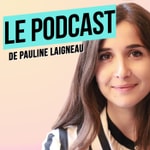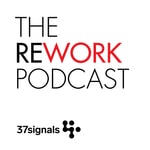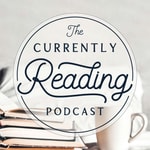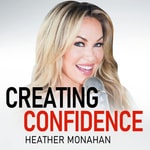But Why: A Podcast for Curious Kids – Details, episodes & analysis
Podcast details
Technical and general information from the podcast's RSS feed.
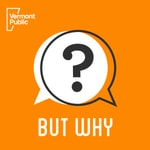
But Why: A Podcast for Curious Kids
Vermont Public
Frequency: 1 episode/13d. Total Eps: 264

Recent rankings
Latest chart positions across Apple Podcasts and Spotify rankings.
Apple Podcasts
🇨🇦 Canada - kidsAndFamily
29/07/2025#9🇬🇧 Great Britain - kidsAndFamily
29/07/2025#22🇺🇸 USA - kidsAndFamily
29/07/2025#10🇨🇦 Canada - kidsAndFamily
28/07/2025#11🇬🇧 Great Britain - kidsAndFamily
28/07/2025#27🇺🇸 USA - kidsAndFamily
28/07/2025#9🇨🇦 Canada - kidsAndFamily
27/07/2025#6🇬🇧 Great Britain - kidsAndFamily
27/07/2025#21🇺🇸 USA - kidsAndFamily
27/07/2025#8🇨🇦 Canada - kidsAndFamily
26/07/2025#7
Spotify
No recent rankings available
Shared links between episodes and podcasts
Links found in episode descriptions and other podcasts that share them.
See all- https://gretchenrubin.com/
486 shares
- https://www.inaturalist.org/
134 shares
RSS feed quality and score
Technical evaluation of the podcast's RSS feed quality and structure.
See allScore global : 48%
Publication history
Monthly episode publishing history over the past years.
How do wind turbines work?
Episode 240
vendredi 23 août 2024 • Duration 21:10
How do wind turbines work? How are wind turbines made? What will our energy picture look like in the future? We’re taking a deep dive into wind power, and trying to make the technology understandable, with Josh Castonguay of Vermont utility Green Mountain Power.
Download our learning guides: PDF | Google Slide | Transcript
Do earthworms have eyes?
Episode 241
vendredi 9 août 2024 • Duration 37:39
Come along to learn all about the wriggling worms that live in the dirt beneath your feet. Earthworms are everywhere, and there are many species of worms yet to be discovered. How do worms communicate? Why do worms have slime? Why do worms come out when it rains? Answers to all of your worm questions with earthworm detective Sam James. Plus, we learn about worm composting with a kid who’s in charge of her family’s food scraps!
Download our learning guides: PDF | Google Slides | Transcript
What's cool about cockroaches?
Episode 232
vendredi 3 mai 2024 • Duration 29:36
That’s a question a lot of people have, honestly. But a kid named Rosie was bold enough to ask us to investigate why. So, in the latest episode, we dig in on why cockroaches get such a bad rap and why you might want to reconsider if you’re not a fan.
Only two percent of the world’s cockroaches are considered pests. Those are the ones that can live in houses and potentially make us sick. But the vast majority of cockroaches don’t bother humans at all! Some, like the social cockroach species known as termites, work to decompose organic material and are hugely important to our environment. So where do people learn negative attitudes toward insects? We dig deep into insects with Jessica Ware, an entomologist and curator at the American Museum of Natural History. She’s also the host of the PBS digital series Insectarium. Answers to your questions about cockroaches, termites, dragonflies, praying mantises and more!
Download our learning guides: PDF | Google Slide | Transcript
Why Do Things Seem Scary In The Dark?
Episode 142
vendredi 18 décembre 2020 • Duration 33:16
Lots of people are afraid of the dark, including many kids who have shared that fear with us. In today's episode we explore the fear of the dark with Daniel Handler, better known as Lemony Snicket, the author of the Series of Unfortunate Events books, and a picture book for young kids called The Dark.
Download our learning guides: PDF | Google Slide | Transcript | Coloring Page
Then we go on a night hike with Vermont Fish and Wildlife biologist Steve Parren, to talk about ways to embrace the darkness. We practice our night vision by not using flashlights and we think about how our other senses can help us navigate. Steve also answers questions about how animals see in the dark and why it sometimes look like animals' eyes are glowing back at us in the darkness.
This episode features coloring pages by Xiaochun Li. Download and print My Flashlight And Me, and Hiding Under The Covers. You can color as you listen!
Why Aren’t Babies Just Little Adults?
Episode 141
vendredi 4 décembre 2020 • Duration 28:13
Why are babies small and grownups big? Why are babies so helpless, instead of little versions of adults? Do babies know they're babies? How do babies grow? How do babies learn to talk?
Kids have been sending us lots of questions about babies! This week we’re learning more about the development of the human brain with Celeste Kidd, professor of psychology and primary investigator at the Kidd Lab at the University of California Berkeley.
Download our learning guides: PDF | Google Slides | Transcript
It seems like a really bad idea, right? Human babies rely on adult humans for everything, while babies of some species never meet their parents and are able to take care of themselves as soon as their born! Why is that?
While researchers aren’t sure on this one, Celeste Kidd says there are a lot of theories.
“Because we are very intelligent, we need bigger brains to account for all the things we can do that other animals can’t do. If you have a big brain and you’re born via live birth – meaning you aren’t born from an egg – then there’s an upper limit on how big your head can be when you go through the birth canal,” she explains.
In other words, we need those big brains to do all the things humans do, but a human head with a fully developed brain can’t fit through the birth canal.
“The bigger your head needs to be ultimately, the more immature you need to be born,” Celeste says. So we have to develop and grow outside of the womb. We’re born with some of our brain power, but our brains keep growing long after we’re born, well into our 20s. And there are some advantages to that long period of childhood.
“If you require dependence on your parents for a really long time, which humans do, that creates a lot of opportunity for you to learn a lot of stuff about your culture and the other people that you’re being raised with. We have a lot of knowledge that is unique to us as a species, and that’s unique to us as social groups,” Celeste says.
The long childhood allows for a lot of cultural transmission – learning about tools, language, manners and arts. Some of these exist in other species, but the human systems are a lot more elaborate and take more time to learn!
Why Are We Still Talking About The Election?
Episode 140
vendredi 20 novembre 2020 • Duration 28:37
A few weeks ago we talked about why kids can't vote and we also answered some questions about the U.S. Presidential Election. It's been two weeks since the November 3rd election, but we're still getting questions about it! We get answers from NPR political reporter Ayesha Rascoe.
Here are some of the questions we're tackling in this episode: What would happen if someone counted the votes wrong? Why is President Donald Trump going to court and why are people saying Joe Biden might not be president? What is the Electoral College and why do we still have it; why haven’t we changed to a popular vote? How does the president talk to the people without being on the news?
Helping us answer these questions is political reporter Ayesha Rascoe, who covers the White House for NPR. Adults, you might want to check out the NPR Politics Podcast, a daily podcast that frequently features Rascoe's reporting and expertise.
Why Do Whales Sing?
Episode 139
vendredi 6 novembre 2020 • Duration 27:16
In our most recent episode, we answered questions about really big animals: whales!
We covered a lot when it comes to these huge aquatic mammals but there was one big topic we didn't get to: and that's how whales communicate. We'll learn more about the sounds whales make: singing, whistles, and echolocation clicks with Amy Van Cise, a biologist at NOAA Northwest Fisheries Science Center in Seattle, Washington.
Download our learning guides: PDF | Google Slides | Transcript
Why Are Whales So Big?
Episode 138
vendredi 23 octobre 2020 • Duration 30:46
How do whales spray water? Why are humpback whales so fat and blue whales so long, and why are blue whales blue? Do whales have belly buttons? How do you weigh a whale? And how do whales drink water in the salty ocean? We have a whale of a time answering questions about these ocean-dwelling mammals with paleontologist Nick Pyenson, author of Spying on Whales: The Past, Present and Future of Earth's Most Awesome Creatures.
Download our learning guides: PDF | Google Slide | Transcript
Why Can't Kids Vote?
Episode 137
vendredi 9 octobre 2020 • Duration 29:55
In the United States, where But Why is based, we have a big election coming up. Election Day is officially on November 3rd. But more Americans than usual are voting in advance this year, sometimes in person at their town hall or city office. And sometimes by mailing in their ballot-that's the piece of paper where they mark down who they want to vote for. People in lots of states are voting for their governors, who help run their states, or their Congresspeople, who work in Washington to help run the country.
But the position that's getting the most attention is the election for who will be president for the next four years. We learn about voting and elections with Erin Geiger Smith, reporter and author of Thank You For Voting and Thank You For Voting Young Readers' Edition. Also: how does the government work? Why haven't we had girl presidents before? Why are Democrats called Democrats? Why are Republicans called Republicans?
Download our learning guides: PDF | Google Slide | Transcript
Why Are Some Animals Pets And Others Are Lunch?
Episode 136
vendredi 25 septembre 2020 • Duration 21:41
This episode may not be suitable for our youngest listeners or for particularly sensitive kids.
We're discussing animal ethics with author Hal Herzog. In a follow up to our pets episodes, we look at how we treat animals very differently depending on whether we think of them as pets, food, or work animals. Why do some cultures eat cows and others don't? Why do some cultures not have pets at all? And is it okay to breed animals like dogs that have significant health problems even though we love them? Herzog is the author of Some We Love, Some We Hate, Some We Eat: Why It's So Hard to Think Straight About Animals.
Download our learning guides: PDF | Google Slide | Transcript



